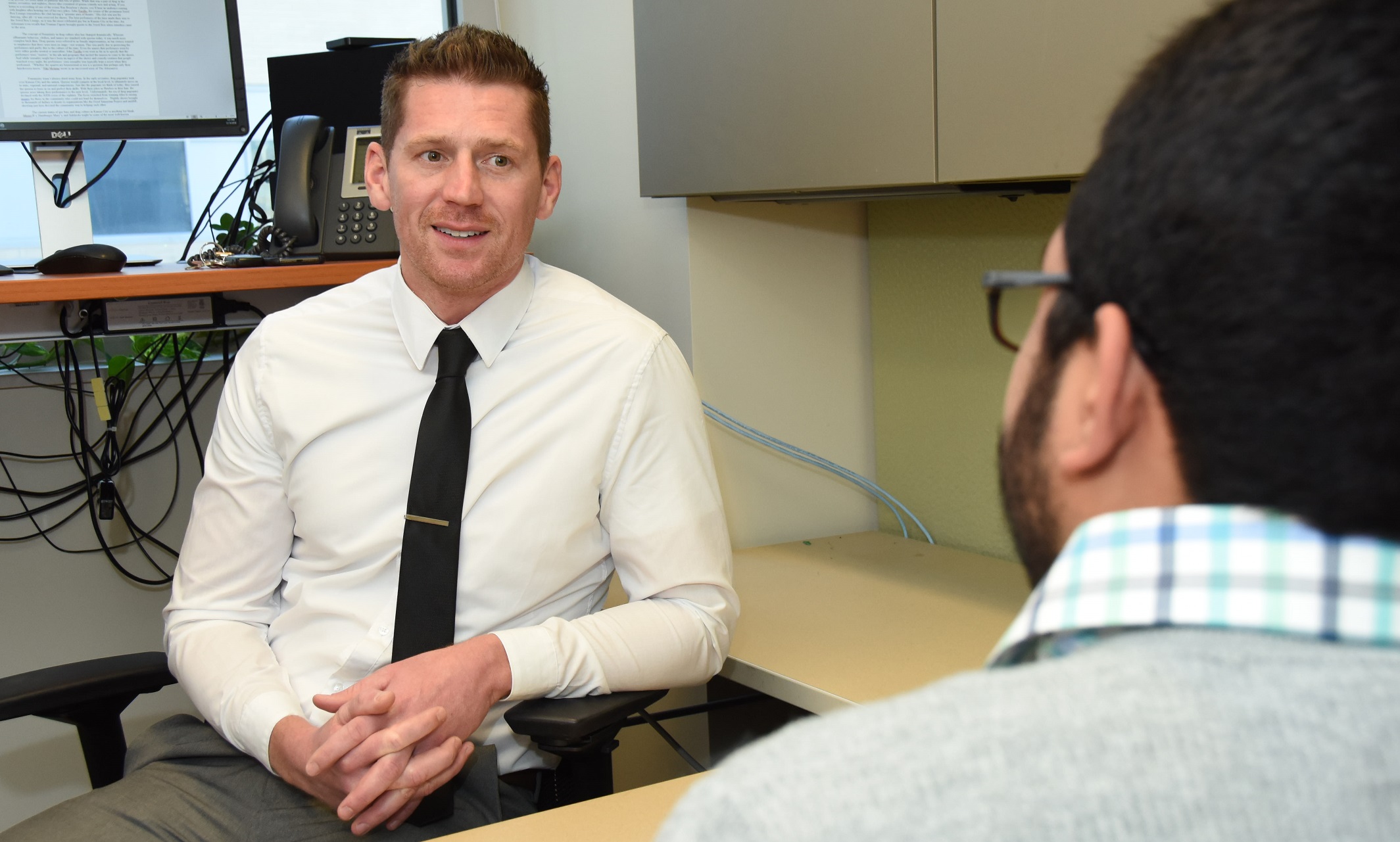Kansas City has a new, ambitious Community Health Improvement Plan addressing the underlying causes of poor health in the city, thanks in part to Joseph Lightner, an assistant professor in the UMKC School of Nursing and Health Studies.
Mayor Quinton Lucas appointed Lightner to the Kansas City Health Commission in spring of 2020, and he was co-chair of its committee that drew up the new plan. Cities revise their Community Health Improvement Plans, CHIPS for short, every five years as part of their national accreditation.
“The city’s plan drawn up in 2016 was innovative by focusing on social determinants of health — including homelessness, inadequate school finance, lack of transportation and access to health care — instead of the chronic health conditions that result,” said Lightner. He worked for the Kansas City Health Department as its liaison to the Health Commission before he joined the UMKC faculty in 2018.
“This 2022-2027 plan takes that one step further, acknowledging the systemic racism that’s underneath so many of the conditions that lead to poor health,” he said. “Kansas City is really a leader in focusing upstream at these causes, to try to solve the problem before it becomes the chronic diseases.”
That focus is needed, the plan says, as Kansas City has been identified as the fifth most racially and economically segregated city in the United States. Lightner, who has a master’s in public health and a doctorate in kinesiology, said the plan detailed goals for the city in six areas: public health infrastructure; safe and affordable housing; well-financed and trauma-informed education; violence prevention; implementation of Medicaid expansion; and equitable access to COVID-19 testing, vaccination and treatment resources.
“Even in a pandemic, most people die of chronic health conditions and the diseases they lead to, whether it’s obesity, diabetes, hypertension or something else related.”
The pandemic showed the need for more public health capacity, Lightner said, especially in underserved areas. The plan notes that Missouri ranks 49th for state public health spending, making local and federal financing all the more important. The city does a good job with its own resources and attracting federal money, Lightner said, “but we need more.”
The plan starts by noting that the life-expectancy gap between ZIP codes with mainly white populations and those with mainly Black residents is wide, 18.2 years between the best and worst ZIP codes, and only grew wider from 2016 to 2019.
Though Kansas City’s health challenges are big, Lightner said the new plan’s goals could make a difference in the lives of thousands of residents. The plan was approved by the City Council, and resolutions and ordinances to advance several of the goals have already been introduced.
“Even in a pandemic, most people die of chronic health conditions and the diseases they lead to, whether it’s obesity, diabetes, hypertension or something else related,” Lightner said. “And people with these conditions, in poor health already, fare the worst from COVID.”
Lightner’s experience includes helping launch the nursing school’s undergraduate public health curriculum and getting students involved in innovative research that brings fitness and nutrition programs to area schools. He hopes his work on the Health Commission will further improve how the city tackles its health challenges.
“Working in the community is so important for our faculty,” he said, “to use our research to improve people’s lives and support the Kansas City community.”

